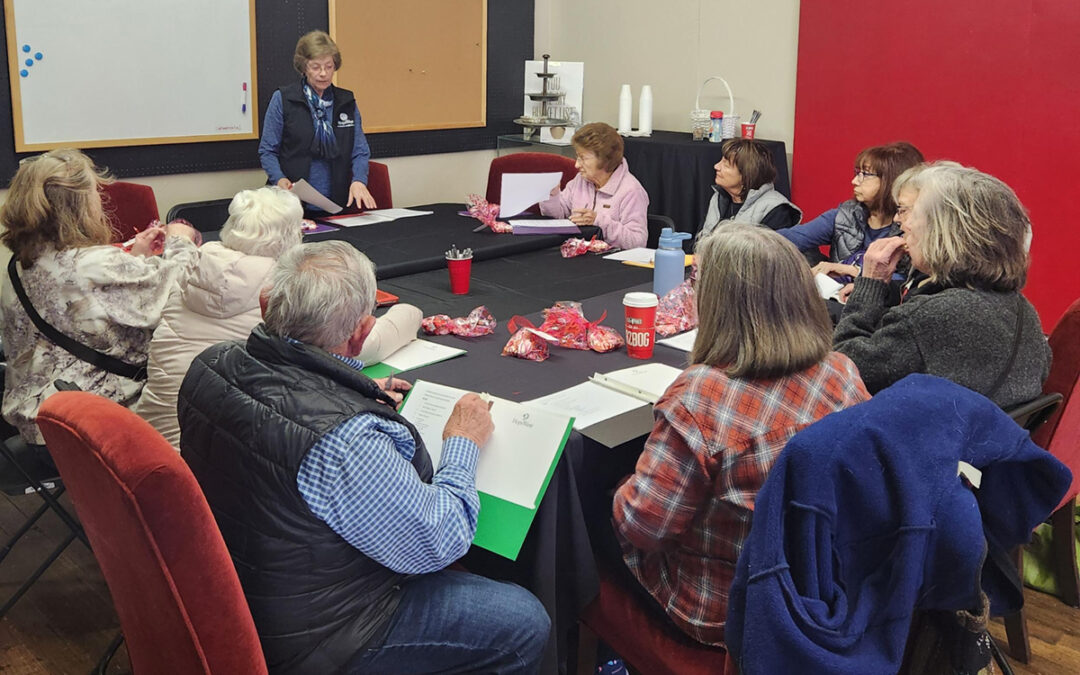In this Q&A style blog, HopeWest Meeker counselor, Judy Eskelson (pictured above), offers advice for caregivers who are supporting loved ones diagnosed with dementia or Alzheimer’s. Eskelson, who also brings her experience as a nurse practitioner, shares her insights on how families can provide support, face common challenges, communicate effectively, and benefit from the specialized services HopeWest offers.
Q – How can families best support a loved one who has been recently diagnosed with dementia or Alzheimer’s?
A – Creating a home environment that goes beyond physical care can be extremely beneficial. It’s important for families to keep their loved one’s environment simple, organized, predictable, and filled with helpful external cues like clocks, calendars, and labels. This approach helps reduce the need for constant verbal reminders and allows for more independence. Ensuring the environment is safe by using adequate lighting, removing rugs, and opting for bedding without patterns can prevent falls and minimize visual distress. Maintaining a familiar daily routine is also key to minimizing confusion and stress for your loved one.
Q – What are some common challenges caregivers face, and how can they navigate these challenges?
A – As caregivers, it’s common to face challenges as our loved ones struggle with the decline in their ability to perform familiar tasks, from managing finances to personal care. It can be helpful to encourage them to do as much as they can on their own, within their capabilities. The progression of the disease requires constant monitoring and adaptation, which can be surprising and challenging for everyone. It’s about finding a balance between providing support and allowing independence.
Q – What are some effective communication strategies that can be used with someone who has dementia or Alzheimer’s?
A – Communication should be simplified to limit frustration for both the caregiver and the person with dementia. Break tasks down into small, one-at-a-time steps and use short sentences without lists. It’s important to avoid sarcasm or indirect language that could confuse or distress them. If they become hostile or aggressive, respond with distractions and reassurance rather than confrontation. Even a gentle touch, when appropriate, can be reassuring. Remember, their reality may be different from ours, and it’s more helpful to create a comforting environment than to challenge their perceptions.
Q – How does HopeWest support Palliative Care patients experiencing cognitive decline, and how does this approach benefit them and their families?
A – At HopeWest, we tailor our support to meet the unique needs of our patients experiencing cognitive decline. We focus on simple and clear communication, reducing unnecessary changes and stimuli. Our volunteers and staff are trained to support both the patient and their caregivers. We offer guidance on daily care techniques, suggest appropriate activities, and help make environmental adjustments. Our aim is to reduce frustration for both the patient and the caregiver, providing a comprehensive approach to care that benefits the entire family during these challenging times.
Judy’s experience and dedication, coupled with HopeWest’s commitment to compassionate care, provide invaluable guidance for families facing the challenges of dementia and Alzheimer’s. To learn more about HopeWest programs within the Meeker community, please call 970-878-9383.
This Q&A was featured in the Rio Blanco County Herald Times. SEE THE ARTICLE >>











